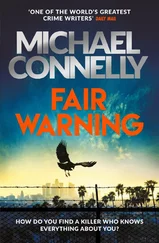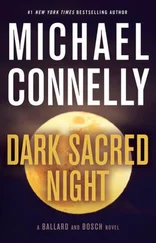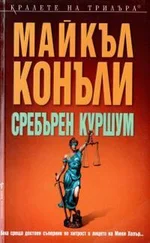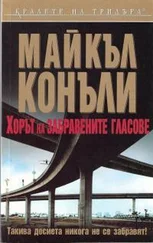I didn’t get much time to dwell on it. Judge Warfield soon took the bench, and the jury remained in the assembly room while the hearing on the discovery issue that was revealed Friday continued. Maggie McFierce made a strong argument for reinstatement of bail as a sanction against the prosecution but it went down without Dana Berg’s even having to respond. Warfield simply rejected it out of hand with a simple “We’re not doing that.”
The judge then asked if the defense wanted to entertain other sanctions. Maggie declined and the issue was left open, meaning it might come into play and give the defense an edge down the line if there was a tight ruling involving judicial discretion. The hope was that the judge would remember the prosecution’s unremedied violation of discovery and tip her discretion our way.
Detective Kent Drucker was returned to the witness stand, and the prosecution took up where it had been forced to leave off Friday. As I had expected, Berg shortened her questions and picked up her pace, using the morning session to take Drucker through the post–crime scene investigation. This included the search of my home the morning after I was arrested, which led to the discovery of the blood and the bullet on the floor of my garage.
To me this was the most damning evidence in the whole case but also the most confounding. To believe I was innocent, you had to believe that I slept through the murder that occurred right below my living space and then unknowingly drove around with the body in my trunk for a day. To believe I was guilty, you had to believe I went out and drugged and abducted Sam Scales, or had someone do it for me, then put his body in the trunk of the Lincoln and shot him before spending the next day with his body still in the trunk while I drove to and from the courthouse. Either way was a hard sell. And both the prosecution and defense knew it.
At one point Berg put several blow-up photos of my house on easels in front of the jury box to help build the case for the guilty scenario. The house was located on a hillside that sloped down from the rear of the property to the front. At street level was the double-wide garage. Stairs to the right went up to the residential space above, which included the front deck, where I had been confronted by agents Aiello and Ruth. The front door led into the living room and dining room, which were directly over the garage. In the back were my bedroom and my home office.
Berg moved Drucker through some testimony involving their testing of gunshots with and without various sound suppressors, so-called silencers, and with the garage door open or closed, in an effort to determine if someone could have broken into the garage, put a drugged Sam Scales into the trunk, and then shot him multiple times without my hearing it from above.
Before Berg could ask the detective what his conclusions were, I objected and asked for a sidebar. The judge told us to approach.
“Judge, I know what counsel is doing,” I began. “She’s going to ask him if all of this testing with gunfire could be heard upstairs, but the witness is not an expert in ballistics or the science of sound. He can’t give an opinion on this. No one can. There are too many factors not accounted for. Was the TV on? Was the stereo on? What about the washing machine and the dishwasher? You see, Judge? You can’t allow this. Where was I in the house when this was supposedly happening? In the shower? Asleep with earplugs in? She is trying to rebut a defense position before we have even put up a defense.”
“Counsel makes a good point, Ms. Berg,” Warfield said. “I’m inclined to stop this line of questioning.”
“Your Honor,” Berg said. “We’ve gone down this path for the past twenty minutes. If I’m not allowed to finish, the state will be unfairly held in a bad light by the jury. The witness is describing efforts made by the police to see if the suspect could actually be innocent. What happens during the defense phase when Mr. Haller trots out the tired tunnel-vision defense? He’ll accuse Detective Drucker of only focusing on his guilt to the exclusion of possibly exculpatory evidence. He can’t have it both ways.”
“You make a good point as well, Ms. Berg,” Warfield said. “We are going to take the lunch break now and I’ll have a ruling on the objection when we come back at one sharp.”
Court was adjourned and I was led back to the courtside holding cell for the hour break. Maggie didn’t join me there for almost a half hour, finally coming in with a sandwich Lorna had picked up at Cole’s, as well as news from Arizona.
“They got him,” she said. “He was staying in his suite, having food brought in, and they thought they were going to have to door-knock him with the subpoena, when he ventured out to the pool. They got him in a bathing suit and bathrobe.”
“Tony Soprano,” I said, recalling that the television mobster liked to lounge around the pool in a bathrobe.
“Exactly what I thought.”
“They get it on video?”
“The whole thing. I have it on my phone. I can show you in the courtroom but they wouldn’t let me bring it in here.”
I unwrapped my sandwich. It was roast beef on a roll. I took a bite and spoke with my mouth full.
“Good. So we have Opparizio for Wednesday—if he shows up.”
I took another bite. The sandwich was delicious, but then I noticed she wasn’t eating.
“You want some of this?” I asked. “It’s great.”
“No, I’m too nervous to eat,” Maggie said.
“What, about the trial?”
“What else?”
“I don’t know. I just didn’t think Maggie McFierce ever got nervous.”
“You’d be surprised.”
“So, who is Opparizio using these days? Back during the Lisa Trammel case, he used Zimmer and Cross to try to quash our subpoena. They failed. I heard he fired them right after that.”
“As far as we can tell from documents we’ve located on BioGreen, he uses the firm of Dempsey and Geraldo for a lot of his stuff. Whether they provide criminal defense, I don’t know.”
“Interesting.”
“Why?”
“I’ve run up against them before. They rep a lot of cops. Especially Dempsey. Looks like with Opparizio they’re at the other end of the spectrum.”
Maggie pursed her lips and I knew she was considering something.
“What?” I said.
“Just thinking, is all,” she said. “I’d like to get a list of their clients who are cops. See if there’s a connection to Officer Milton.”
“You can get that.”
“They’re not going to just give it to me.”
“No, but you have access to the county courts database. Put their names into it, and you’ll get hits on every case they’re involved with.”
“I took a leave, Mickey, remember? I could get fired if I did that.”
“You told me yesterday you were sneaking in to use your office phone.”
“That’s different.”
“How’s—”
Deputy Chan opened the cell door and told us it was time to go back to court. Maggie and I dropped the conversation there.
Once we were back at the defense table, Maggie pulled her phone and played me the video she had received from Cisco in Scottsdale. She had the sound down low but I could hear enough. And I could tell from Opparizio’s contorted and red face that he was angry at being served with the subpoena. He was equally upset with the camera recording the event. He lunged at it, his bathrobe flapping open and his flour-white gut hanging over his board shorts. The man behind the camera—one of Cisco’s Indians—was lighter on his feet and the lens swiftly moved out of range of Opparizio’s swinging hand without ever losing him in the frame.
The reference to Tony Soprano had been spot-on and I wondered if Opparizio himself embraced the resemblance.
Читать дальше
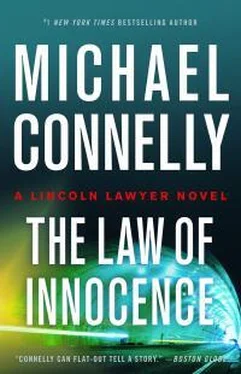



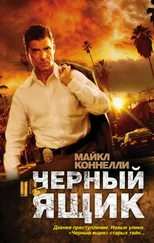
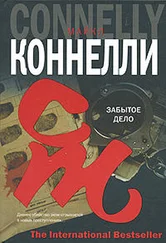

![Майкл Коннелли - Christmas Even [Short story]](/books/390532/majkl-konnelli-christmas-even-short-story-thumb.webp)
